Mercedes EQV is the first premium electric MPV from Mercedes and the first EQ model of the Mercedes-Benz Vans division. The 90 kWh battery promises a range of 417 km.
Mercedes clearly states that EQV is the first EQ model of the Mercedes-Benz vans range. Therefore it is not one of the 10 EQ cars that will appear until 2022, belonging to another division.
The Mercedes EQV stands on the same platform as the V-Class with conventional engines. Thus the electric model rolls off the same assembly line at the plant in Vitoria, Spain. The electric motor is located in front and transmits power to the front wheels being powered by a water-cooled Li-Ion battery with a gross capacity of 100 kWh and a net capacity of 90 kWh.
The electric motor develops a maximum output of 150 kW (204 HP) and a continuous power of 70 kW (95 HP), the maximum torque being 362 Nm. The battery has the CCS European standard for charging and is charged from AC stations with up to 11 kw in less than 10 hours or from fast DC stations in 45 minutes from 10 to 80%.
Top speed is 140 km/h, but, for only 174 euro, you can increase maximum speed to 160 km/h.
Mercedes EQV is available in long version (wheelbase 3,200 mm) and extra long (wheelbase 3,430 mm). Prices start from 70,631 euros for EQV 300 Long and from 71,501 euros for EQV extra long. By comparison, the V 220 d starts at around 50,000 euros. Mercedes promised a range of 417/418 km NEDC which is the equivalent of about 350 km WLTP.
EQV can accommodate up to 8 people on board in various configurations and Airmatic air suspension is optional. Like other Mercedes models, EQV has the MBUX multimedia system which in the case of EQV has a 10.25-inch touch display. From the MBUX EQ menu you can activate the pre-conditioning, adapt the charge settings and operate the navigation with electric intelligence as well as the Mercedes me Charge functions.

What is the role of the paddles behind the steering wheel of the Mercedes-Benz EQV?
As with other Mercedes models, the paddles behind the wheel are not used to change gears but for different levels of energy recovery:
– D Auto: the level of recuperation dynamically and predictively between 0 and -2 m/s², based on data provided by the safety assistants, camera and navigation.
– D+: No recuperation
– D: recuperative force comparable to that of conventional engine (-0,6 m/s2)
– D-: recuperative force increases to -1.5 m/s2
– D — recuperative force of -2 m/s2
The driver can choose four different driving programs:
– the standard C program provides full power of 150 kW and maximum torque of 362 Nm plus full heating and air conditioning.
– the E program provides a power output of 100 kW (150 kW with kickdown), a maximum torque of 293 Nm and decent heating and air conditoning.
– the E+ program maximize the range. In this case power is limited to 80 kW (150 kW with kickdown) and maximum torque is 293 Nm. Heating and air conditioning are redcued to the minimum.
– the S program offers maximum performance.
| Model | Mercedes EQV long | Mercedes EQV extra-long |
|---|---|---|
| Engine | electric | electric |
| Max. Output (kW) | 150 | 150 |
| Continuos power (kW) | 70 | 70 |
| Max. torque (Nm) | 362 | 362 |
| Transmission | front | front |
| Gearbox | automatic, 1 gear | automatic, 1 gear |
| L(mm) | 5.14 | 5.34 |
| Wheelbase (mm) | 3.2 | 3.43 |
| Boot volume (l) | 1.03 | 1.41 |
| Top speed (km/h) | 140/160 | 140/160 |
| Battery capacity brutto/net (kWh) | 100/90 | 100/90 |
| Consumption (kWh/100 km) | 26,3 | 26.4 |
| Range (km) | 418 | 417 |
| Charge time AC up to 11 kW 0-100% | <10 h | <10 h |
| Charge time DC up to 110 kW 10-80% | 45 min | 45 min |
















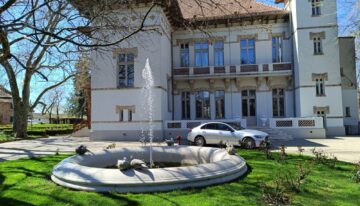
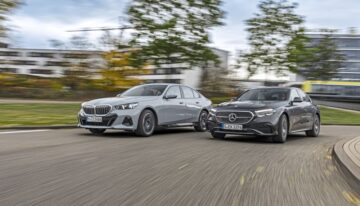
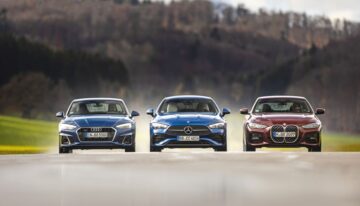
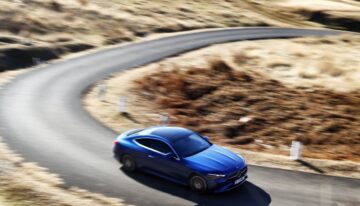
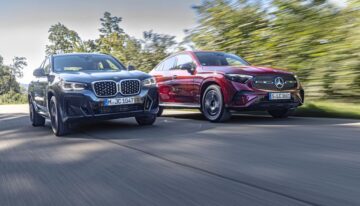
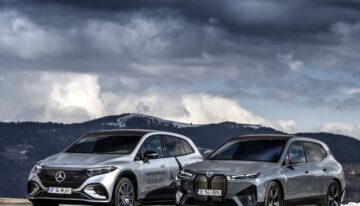
[…] Credit: Original article published by Benz News Blog News. […]